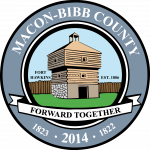Municipal Court
Macon-Bibb County has established this website to provide citizens with information concerning parking regulations and the payment of tickets/citations. An overtime parking ticket must be paid within 20 days of issuance to avoid additional fees.
Some tickets/citations may not be paid without first appearing in court before a judge. In Appendix III, Part I: Schedule of fines of Municipal Court’s website, you can look up those tickets/citations for which defendants must appear in court before they may pay their fines. Such “must appear” tickets/citations are not payable either online or by phone.
Organizational structure
The mission of Municipal Court of Macon-Bibb County is divided into two sections: judicial and administrative. The judicial section consists of one full-time and three part-time judges. They are as follows: Chief Judge Crystal Jones; and part-time judges, Judge Robert E. Herndon, Judge William M. Shurling III, and Judge Kathryn W. Gerhardt.
The administrative section of the Court has nine employees, headed by Chief Clerk LaTonya Slaughter, Director of the Court. The administrative court personnel staff are organized into two divisions: financial and court operations/data entry. The financial division, managed by Deputy Chief Clerk Shemeka Williams, directly supports the judges in the courtroom, receives payments for court fines and arrest warrants, as well as supports the various agencies and entities the court services. Financial Division employees: Angel Watts, Danielle Flowers, and Shunderlon Holt.
The court operations/data entry division, managed by Deputy Chief Clerk Natalie Callaway, ensures entering citations into the court’s computerized database, performs GCIC-related and probation-related tasks, and prepares the L.E.C. court calendar. Court operations/Data entry Division employees: Tara Stephens, Cenia Cliett and Theresa Simmons.
Court Information
About Macon-Bibb County Municipal Court
Article VII of Macon’s city charter established Municipal Court as the judicial branch of our government. House Bill 1171 enacted by the General Assembly of Georgia consolidated the governments of the City of Macon and Bibb County, effective of January 01, 2014. Section 7(f) of HB 1171 declares that “on the effective date of this charter, the operations and employees of the Municipal Court of the City of Macon shall continue its operations without interruptions resulting from the adoption of this charter. The employees of such court shall become employees of the restructured government of Macon-Bibb County. The court shall be known as the Municipal Court of Macon-Bibb County.. .. Such court shall have jurisdiction over all traffic offenses and code violations occurring in Macon-Bibb County.”
Cases filed in Macon-Bibb County Municipal Court are for violations of certain misdemeanor state law offenses and violations of city-county ordinances, environmental violations, traffic violations, and parking violations.
Mission
The mission of Macon-Bibb County Municipal Court is to administer justice fairly, impartially, effectively, efficiently, and courteously to anyone charged with traffic violations within Macon-Bibb County and with violations of Macon-Bibb County ordinances.
Jurisdiction
Cases filed in the Municipal Court of Macon-Bibb County are for violations of criminal rather than civil code. They include but are not limited to, certain misdemeanor state laws offenses and violations of Macon-Bibb County ordinances relative to environmental violations, traffic violations, parking violations, and other assorted misdemeanors.
Environmental violations
Some examples of environmental violations include violations of the building code, of the housing code, of the unsafe building abatement code, properties subject to the Blight Tax and of the sanitation code.
Traffic violations
Traffic violations include moving and non-moving violations committed by or in either personal or commercial vehicles.
Parking violations
Some examples of traffic violations include overtime parking, parking near fireplug, parking in hospital emergency door, double parking, and parking in a loading zone.
Misdemeanor violations
Misdemeanor violations include, but are not restricted to, selling alcohol without a license, creating unnecessary noise, creating noisome odors, disorderly conduct, cutting utility wires, and disfiguring public property.
